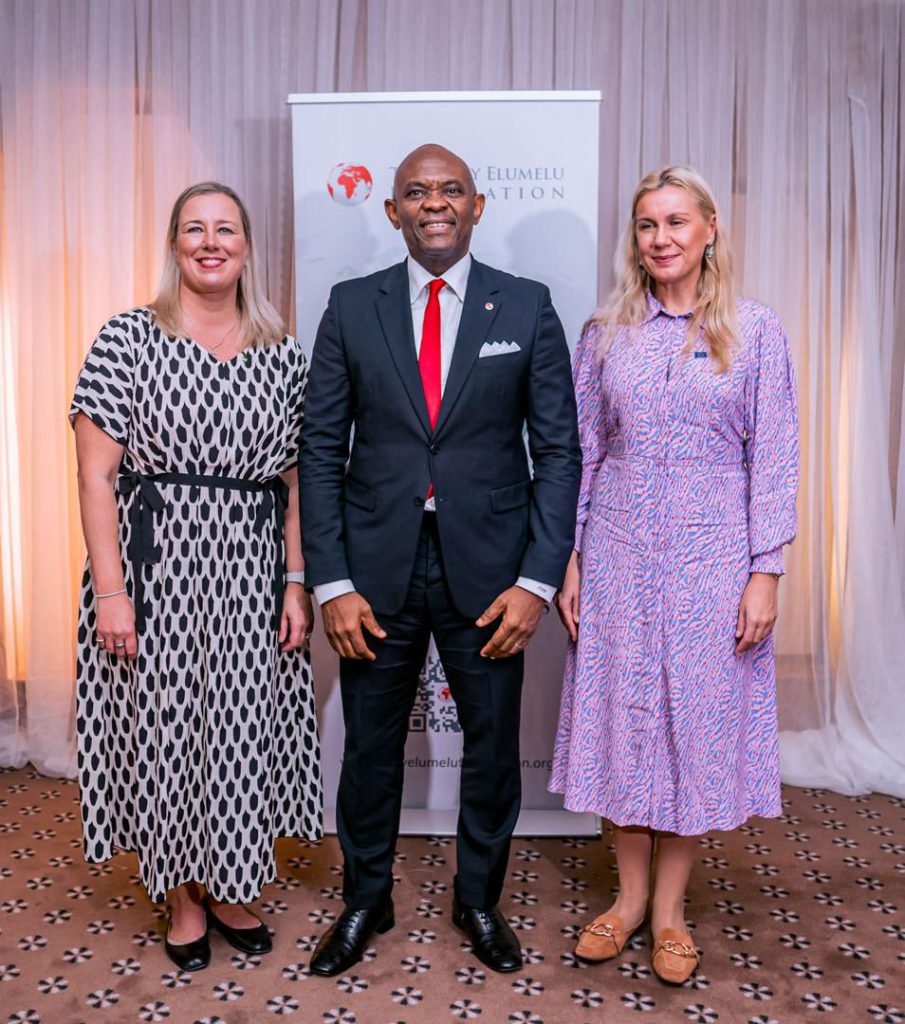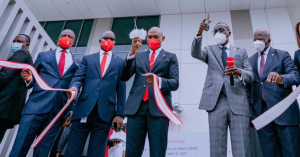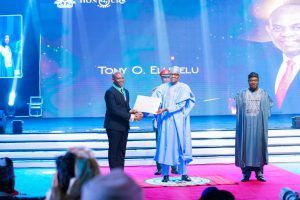
Earlier this week, I joined Jutta Urpilainen, European Union Commissioner for International Partnerships, to discuss the EU’s approach to the Sahel.
Impressive engagement by the EU – it was refreshing, there was mutual respect – TEF and European Union Commissioner for International Partnerships have worked closely together on female entrepreneurship. It was good that the views and voices of business and entrepreneurs, particularly the young, who might otherwise take the cruel option of migration, are heard.
But I also reflected on Africa’s own approach to development. I know no one but us will develop Africa. I have criticised outdated development models – and championed the need to economically empower our young. But I also know we Africans must eliminate any sense of entitlement, our own development barriers – and in line with my philosophy of Africapitalism, work collaboratively – our governments, private sector, development partners, and international institutions – to create real change.
The devastating impact of climate change and the acute unemployment ravaging our young, call for solutions that prioritise our young Africans.
And we must not just speak to our young, but listen to them. Channel their creative energies, their drive, their entrepreneurship. I see successes everyday – I need to see many more.
Collaboration is key. As my good friend, Koen Doens DG, International Partnerships at the EU, highlighted during the meeting, the ongoing partnership between the EU and the Tony Elumelu Foundation is creating thousands of new jobs and unlocking economic hope and prosperity. Through this partnership, thousands of young entrepreneurs have been empowered with business training, mentorship, and funding to start and scale small businesses.
Intervention models that prioritise our young, ensure delivery to the last mile, and guarantee the intended beneficiaries are the true recipients, should be replicated and scaled. Collaboration with the private sector provides a more effective means to creating economic empowerment and employment. Working with local partners with the expertise, track record, knowhow, networks, and insight to ensure that scarce resources are channeled directly to the vulnerable communities in need.
The work we do together has scratched the surface. We must work to bring solutions and not to point our fingers at each other. Working collaboratively is the only way get to the solutions we need in Africa.
Africa is a thriving continent, with 60% of its population under 35. This is an immense opportunity for growth, innovation, and sustainability; but first, we must define how we all contribute towards building the Africa we want to see. And the EU must regard Africa as an equal partner as we progress on this renewed journey.
We feel the frustrations of the past, but the past cannot provide the way forward. We need to discuss what we do going forward by looking at the problems that have led to all of these and find solutions.
Those who bear the brunt of sanctions are not the political elite, instead it is the masses who suffer. Sanctions turn them around and make them hate those they think are causing these problems for them. The people don’t see sanctions as consequences brought on them by the actions of the political leaders in power. They see sanctions as punishment from hostile foreign governments. Sanctions should be reimagined; we need to rethink their efficacy. They may have worked in the past but certainly do not work in the current world. It creates and breeds even worse extremism. There must be other ways to engage and force bad leaders out of office. Sanctions are dated and the world must revisit this traditional approach, because those who suffer the brunt of sanctions are the masses and not those in power.
My interest is creating new generations of entrepreneurs, who anchor communities, do well – and crucially do good – are responsible.
Let’s also ask the EU – why if the EU is investing significantly in Africa, is it not being felt? We can’t keep doing the same thing over and over and expecting a different outcome. Our people don’t feel the full extent of the EU’s commitment, because of a faulty intervention mechanism. There is too much reliance on governments. Is government the best channel to distribute these resources? I think not. Frankly too many hands intervene.
Let’s get the money to those who can best deploy it. Let’s measure impact – the impact of young entrepreneurs, SMEs, women, green entrepreneurs.
A more targeted approach will create economic prosperity, jobs, help our SMEs, uplift our people, and bring more women into economic activity. We will empower millions, when we deal directly with the last mile recipients.
One of The Tony Elumelu Foundation beneficiaries in Sokoto, Northern Nigeria, has established a private school, training thousands of young students, and taking people off the streets. The signalling effect across his community is strong. Other young people see how his life has been transformed and aspire to be like him. This is what happens when people get the direct impact and benefit of the intervention. This is what happens when you reach and impact the last mile.
This is the biggest challenge of the EU engagement with Africa so far – that the right people have not been impacted. A combination therapy of close collaboration with private sector, no sanctions, and a keen focus on last mile and youth empowerment is how EU should engage Africa going forward.
So partnership, entrepreneurship, a focus on our young, and a shared destiny.
Finally let’s talk frankly about ourselves and our partners.
I also had to ask why we Africans are not ourselves convening to work out how best to engage with the rest of the world. So, thanks to Jutta and EU for making this happen.



